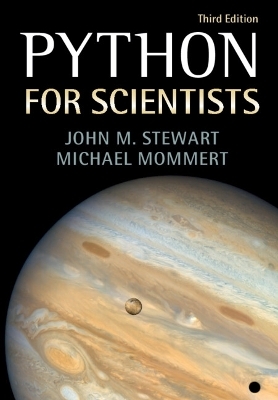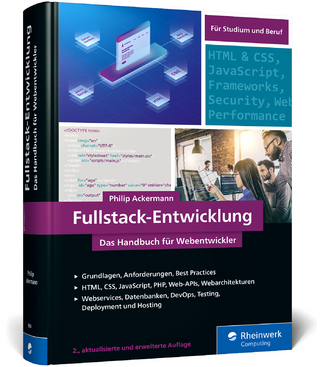
Python for Scientists
Cambridge University Press (Verlag)
978-1-009-01480-9 (ISBN)
The third edition of this practical introduction to Python has been thoroughly updated, with all code migrated to Jupyter notebooks. The notebooks are available online with executable versions of all of the book's content (and more). The text starts with a detailed introduction to the basics of the Python language, without assuming any prior knowledge. Building upon each other, the most important Python packages for numerical math (NumPy), symbolic math (SymPy), and plotting (Matplotlib) are introduced, with brand new chapters covering numerical methods (SciPy) and data handling (Pandas). Further new material includes guidelines for writing efficient Python code and publishing code for other users. Simple and concise code examples, revised for compatibility with Python 3, guide the reader and support the learning process throughout the book. Readers from all of the quantitative sciences, whatever their background, will be able to quickly acquire the skills needed for using Python effectively.
John M. Stewart was Emeritus Reader in Gravitational Physics at the University of Cambridge, and a Life Fellow at King's College, Cambridge before his death in 2016. He was the author of 'Non-equilibrium Relativistic Kinetic Theory (Springer, 1971) and 'Advanced General Relativity' (Cambridge, 1991), and he translated and edited Hans Stephani's 'General Relativity' (Cambridge, 1990). Michael Mommert is Assistant Professor for Computer Vision at the University of St. Gallen, Switzerland, where he combines computer vision and Earth observation to implement efficient learning methods for a wide range of use cases. Before, he was a Solar System Astronomer and actively wrote scientific open-source code for this community.
1. Introduction; 2. About Python; 3. Basic Python; 4. NumPy – Numerical math; 5. SciPy – Numerical methods; 6. Matplotlib – Plotting; 7. SymPy – Symbolic math; 8. Pandas – Data handling; 9. Performance Python; 10. Software development tools; Index.
| Erscheinungsdatum | 19.08.2023 |
|---|---|
| Zusatzinfo | Worked examples or Exercises |
| Verlagsort | Cambridge |
| Sprache | englisch |
| Maße | 169 x 243 mm |
| Gewicht | 530 g |
| Themenwelt | Mathematik / Informatik ► Informatik ► Programmiersprachen / -werkzeuge |
| Mathematik / Informatik ► Mathematik ► Analysis | |
| ISBN-10 | 1-009-01480-3 / 1009014803 |
| ISBN-13 | 978-1-009-01480-9 / 9781009014809 |
| Zustand | Neuware |
| Haben Sie eine Frage zum Produkt? |
aus dem Bereich


